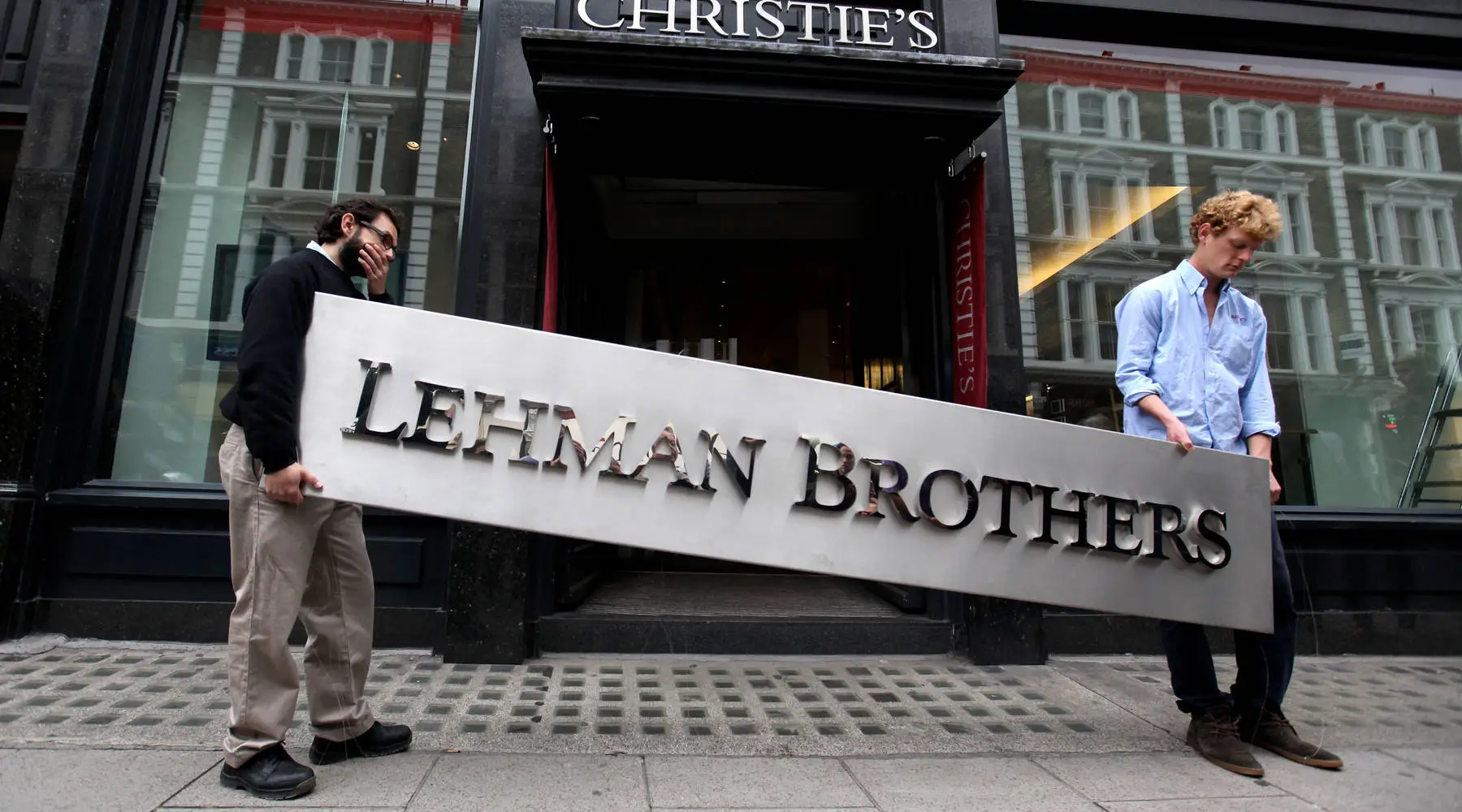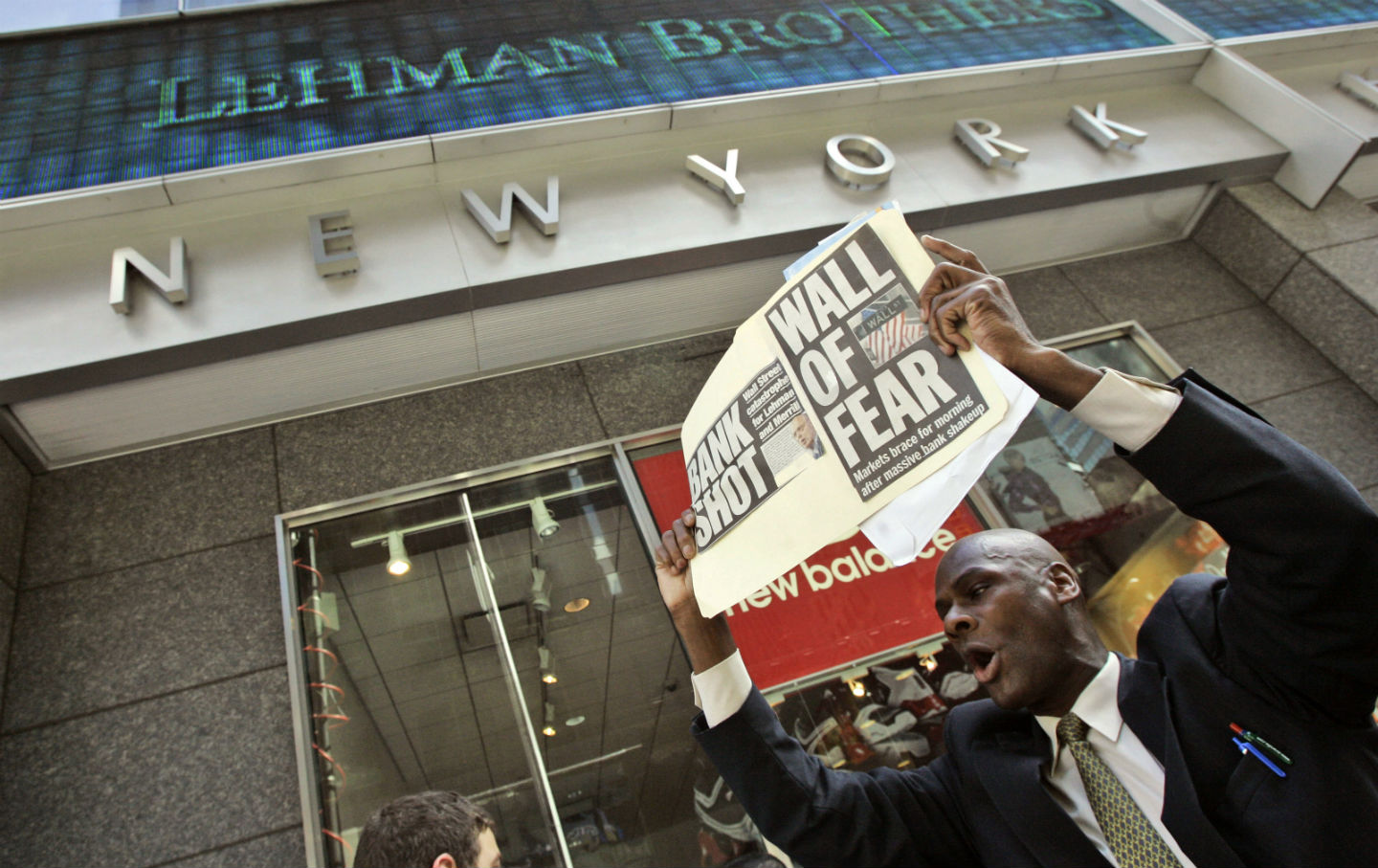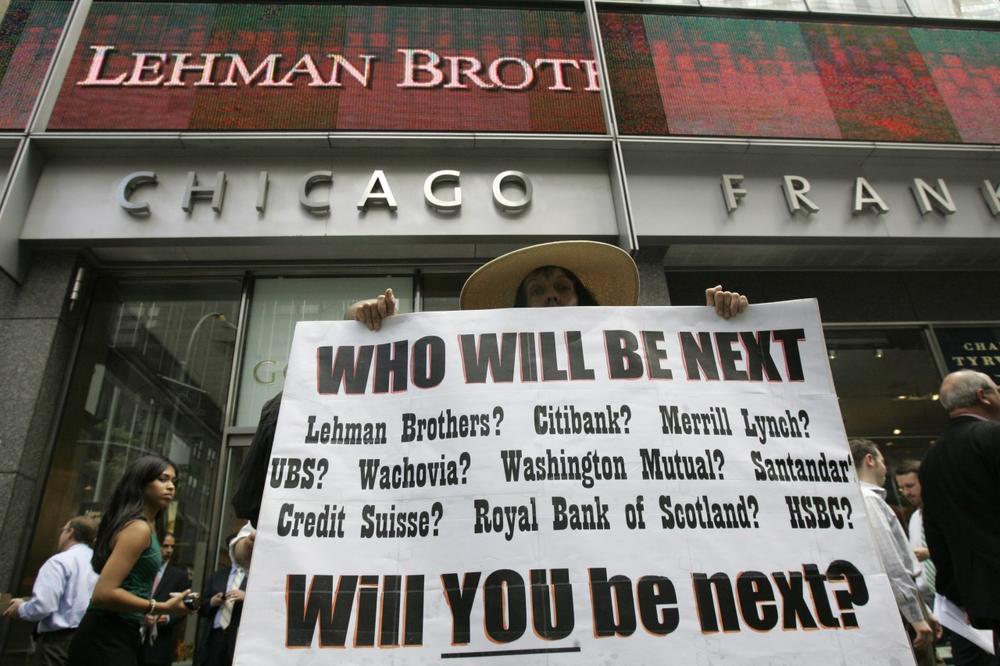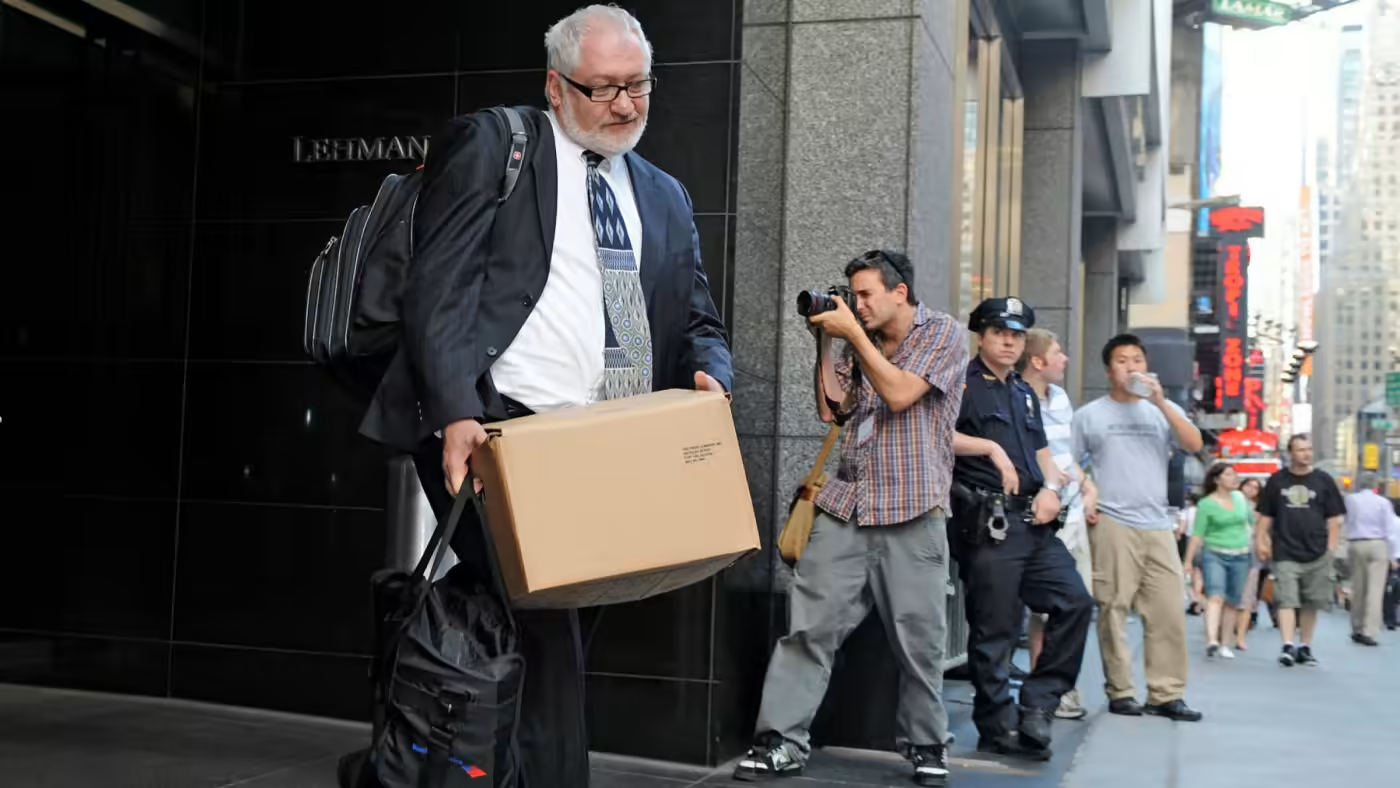
¶ The Collapse of Lehman Brothers
¶ Background
Lehman Brothers Holdings Inc. was a founded in 1847. Lehman was one of the first firms to move into the business of mortgage origination, beginning in 1997.
Before bankruptcy, Lehman was the 4th largest investment bank in the US - by 2003 they ranked 3rd in lending.
¶ Inflating Lending Exposure
Quick numbers:
- 2003: Lehman lent $18B
- 2004: Lehman lent $40B
- 2006: Lehman was lending out $50B PER MONTH
By 2008, Lehman had assets of $680B supported by only $22.5B of firm capital. With that leverage, a 3-5% decline in real estate values would wipe out all capital.
Let's rewind to 2007, when the ice is beginning to crack in the mortgage market.
In August, the firm closed its subprime lender, BNC Mortgage (purchased just 7 years ago in 2000), eliminating 1,200 jobs in 23 locations. Lehman took an after-tax charge of $25MM and a $27MM reduction in goodwill.
By 2008, the subprime mortgage issue was blooming into a crisis.
Lehman had been particularly vulnerable; they had a large amount of low quality mortgages left unused when creating mortgage-backed securities (MBS) 3rd largest lender... quality over quantity.
"Give the loan, we'll figure it out later"
¶ Crisis Avoided?
On March 16th Bear Stearns fell; immediately all turned to Lehman to watch the next pillar crumble.
History is funny... Lehman got a second chance! A small profit and a market in chaos gave Lehman stock a 46% 1-day boost!
Lehman lived to fight again!
¶ Crisis Unavoidable
Alas, the second chance did not last long... On June 9th, Lehman announced both a quarterly loss of $2.8B and a was forced to sell off $6B in assets.
Lehman stock dropped 73%.
As a result, there was a coup. The investment banking group came for the CEO; chaos ensued.
¶ Collapse
In August, Lehman announced it would cut 6% of its workforce (1.5k) - just before its 3rd quarter reporting deadline. On August 22, reports surfaces that state-controlled Korea Development Bank was considering buying the bank.
And then… September 2008.
¶ September 9th, 2008
On September 9th, even more air was let out when it was reported that the Korean bank had put talks on hold.
The market watched in horror has Lehman lost half its value, pushing the S&P 500 down 3.4%.
¶ September 10th, 2008
On September 10th, Lehman announced a loss of $3.9B and its intent to sell off even more highly lucrative assets.
The stock dropped 7%.
¶ September 11th, 2008
On Thursday, September 11th, the stock dropped another 40%.
By Friday, blood was in the water.
¶ September 13th, 2008
Saturday, September 13, the New York Fed called a meeting on the future of Lehman. The hope: that Bank of America or Barclays would purchase Lehman in whole, similar to the Bear Stearns solution.
The goal: emergency liquidation
Interestingly, it appears a deal might have been possible.
Barclays had apparently reached a deal to buy Lehman, in whole, but at the last minute the British government refused the transaction.
Don't worry, we'll see Barclays again.
¶ September 14th, 2008
On Sunday, September 14, the International Swaps and Derivatives Association (ISDA) opened an exception session to allow market to participants to prepare for the impending Lehman bankruptcy.
Later that day, Lehman Brothers Holdings announced it would file bankruptcy.
Before the feast, the vultures gathered to portion out the prize. A group of Walls Street firms, working with the Fed, agreed to "facilitate" the liquidation.
¶ September 15th, 2008
Monday, September 15 is the day you think of when you think of "Lehman Brothers." Lehman shares tumbled over 90% on that day alone.
The Dow Jones closed down just over 500 points on September 15, 2008, the largest drop since September 11, 2001.
¶ September 16th, 2008
On September 16th, Barclays bid the outrageously low sum of $1.75B for Lehman Brother's, "stripped clean" of its toxic assets.
4 days later, Judge James Peck approved a revised version of the deal (a little bit less - $1.35B) for most of the same stuff):
The reason we're not objecting is really based on the lack of a viable alternative. We did not support the transaction because there had not been enough time to properly review it.
-Luc Despins, representing the creditors committee counsel
"I have to approve this transaction because it is the only available transaction. Lehman Brothers became a victim, in effect the only true icon to fall in a tsunami that has befallen the credit markets. This is the most momentous bankruptcy hearing I've ever sat through. It can never be deemed precedent for future cases. It's hard for me to imagine a similar emergency."
-Judge Peck
Nomura, a Japanese brokerage firm, purchased Lehman's Asian division for $225MM and European division for $2 (not a typo) purely for the employees; it did not take any assets.
This is the end of the non-US Lehman companies; they were responsible for >50% of total revenue.
¶ Dividing the Spoils
Lehman Brother's died during those fateful couple weeks in September 2008. All that remained was dividing up the carcass.
On September 29, Bain Capital and Hellman & Friedman bid for most of Lehmans investment management business, only to be beat out by company insiders on December 3 (that's right - the same people who were their when the whole thing crashed, albeit the crash was outside of the investment management business).
In Europe, the Quantitative Asset Management Business was acquired back by its employees on November 13.
¶ Aftermath
Lehman's bankruptcy filing was the largest in US history, sending an already distressed market into incredible volatility. The Dow eventually closed at a new six-year low of 7,552 on November 20, followed by a further drop to 6626 by March of the next year.
Lehman's collapse was another domino in a cascade of destruction occurring in the financial system. The fires of Lehman spread to the real estate & money markets, to AIG, Freddie Mac, German & Japanese "Minibond" holders, and to so many more.
¶ Lingering Questions
So who is responsible for the fall of Lehman Brothers and the damage it caused?
In this case, the easy answer holds weight: those bankers really were crooks! A March 2010 court-ordered report indicated regular use of "materially misleading" accounting tricks.
However, I think there's a more subtle, more important reason Lehman crumbled during one long week in September 2008.
A reason that isn’t particularly unique to Lehman.
Just before the collapse, an executive proposed that Lehman's top execs forgo their bonuses to send a message and take accountability for recent performance. His boss dismissed the proposal, responding to the chiefs "Sorry team. I'm embarrassed and I apologize."
Accountability wasn't just under prioritized, it was actively selected against in lieu of aggressive (reckless) growth.
During hearings on the bankruptcy filing by Lehman Brothers and bailout of AIG before the House Committee on Oversight and Government Reform, House committee Chairman Henry Waxman commented that the documents received form Lehman showed "no accountability for failure."
Honestly I don't Congressman Waxman sees the big picture.
It's not that theres no accountability for failure, it's that theres no consequences for failure.
This is what you get out of a system we built.
¶ Resources
Source Material - Twitter link
Source Material - PDF



